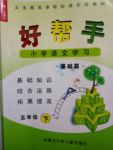题目内容
Appearing at such a formal party for the first time, I felt____________and wanted to flee.
| A.out of control | B.out of shaper | C.out of place | D.out of use |
C
解析

练习册系列答案
 小学学习好帮手系列答案
小学学习好帮手系列答案 小学同步三练核心密卷系列答案
小学同步三练核心密卷系列答案
相关题目
题目内容
Appearing at such a formal party for the first time, I felt____________and wanted to flee.
| A.out of control | B.out of shaper | C.out of place | D.out of use |
C
解析

 小学学习好帮手系列答案
小学学习好帮手系列答案 小学同步三练核心密卷系列答案
小学同步三练核心密卷系列答案